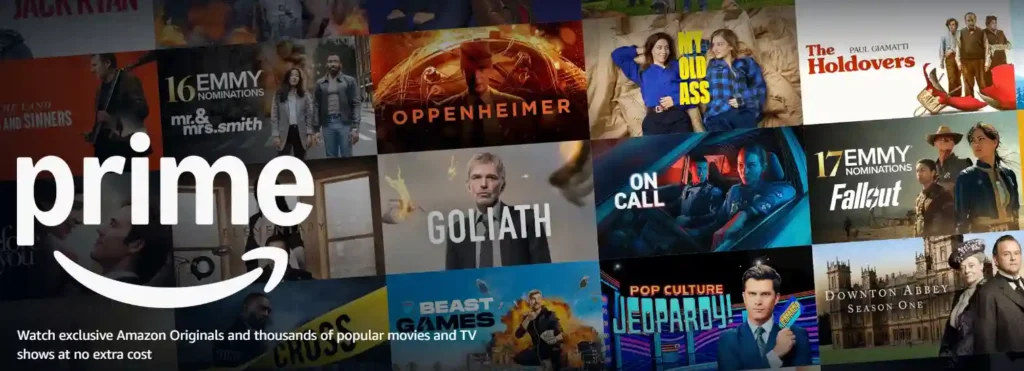From Page to Screen, The Godfather Aced Percy Jackson and the Olympians
From Lightning to Fireflies
Page to Screen Adaptations – Transforming ink-stained pages into cinematic gold, or occasionally, into lead. Let us embark on a voyage across the shifting seas of adaptation, its majestic peaks of cinematic nirvana, and its shadowy depths where good books go to die onscreen.
Picture if you will, a world where every frame of film is a word made flesh, where every cut sequence a sentence left unfinished. In this realm, adaptation plays both hero in its daring feats of translation from page to screen and villain when it loses the very soul it seeks to incarnate. Through metaphors as vivid as technicolor dreams and dialogue sharp enough to splice celluloid, we’ll traverse territories marked by triumphs—where filmmakers have captured lightning in a bottle—and trespasses where they’ve perhaps caught only fireflies.
In Page to Screen | The Godfather and Percy Jackson
TRIUMPH!
The Godfather: An Offer Cinema Couldn’t Refuse
Once upon a time in the annals of cinema history, Francis Ford Coppola ventured into the murky depths of the Italian-American mafia and emerged with what can only be described as cinematic royalty. “The Godfather,” based on Mario Puzo’s narrative masterpiece, not merely was adapted page to screen, the film transcended its source material to reign supreme in cultural impact. This film unraveled like a beautiful yet sinister tapestry, woven with stellar performances, an iron-clad gripping narrative, and atmospheric direction that would indelibly etch it into the pantheon of American cinema.
This cinematic marvel is a concoction of darkly tinted dreams and stark realities; every frame feels like a brushstroke painted with intentions both purely aesthetic and profoundly symbolic. The alchemy between Coppola’s visionary direction and Puzo’s haunting prose conjured a realm where Marlon Brando’s Don Vito Corleone breathed life into our collective conscience, whispering offers too compelling to refuse. It was here, under Coppola’s meticulous orchestration, that characters such as Michael (played by Al Pacino) transcended their literary origins to become flesh-and-blood icons, haunted by destiny and ambition.
Yet, herein lies “The Godfather’s crowning achievement: its unwavering capacity to be more than just a film – it became art. Each scene dances between shadows and light both literally and metaphorically, ensnaring viewers in its operatic embrace long after they leave the darkened theaters. Notably devoid of judgment yet rich in complex moral inquiry, this saga invites us not just to witness but to ponder the very essence of power, loyalty, and family. It stands as an offer cinema never refused — becoming not only the de facto prime example of Americana distilled through art but also setting a high watermark for how deeply an adaptation can resonate across generations. Through “The Godfather,” we were given a masterclass in how page to screen adaptations should honor their roots while daring to unfurl their wings boldly against the vast sky of creative possibility.
Why You Should Read The Godfather Even if You’ve Seen the Movie


Don’t wait to dive headfirst into the captivating world of Mario Puzo’s The Godfather! Sure, the movie is a cinematic legend, but the book is a whole other level of awesome. It’s like stepping behind the scenes of the Corleone family saga, getting up close and personal with all the drama, the loyalty, and yeah, the not-so-nice stuff too.
Think of the book as the ultimate director’s cut of The Godfather story. Puzo weaves a rich tapestry of backstories and subplots. His writing is sharp and clear, like a seasoned journalist exposing the Mafia’s inner workings. But it’s also incredibly insightful, delving into characters so you get a much richer understanding of their motivations, and their inner demons. And fair warning, some of the descriptions of violence are pretty intense, showing the true cost of that lifestyle.
The book also takes a closer look at how ambition for power, both within the Corleone family and in the wider Mafia world, can twist and corrupt even the most well-intentioned people. It’s a fascinating, and sometimes disturbing, look at how the pursuit of control can lead to destruction. Seriously, if you loved the movie, you need to read the book. It’s a more complete and immersive experience that will blow your mind. You’ll gain a deeper appreciation for the story, the iconic characters, and the complex themes of power, loyalty, and betrayal. With its vivid writing and intricate plot, The Godfather novel is a truly unforgettable read. You won’t regret it!
TRAVESTY!
Percy Jackson & The Olympians: The Lightning Thief Mythology Muddled
In the labyrinthine world of literary-to-film adaptations, the attempted flight of “Percy Jackson & The Olympians” serves as a cautionary tale – not unlike Icarus, it soared too close to the sun with its ambitions but ultimately plummeted due to its own missteps. Rick Riordan’s original series was a masterclass in weaving the ancient allure of Greek mythology with the relatable struggles of adolescence. Yet, when Hollywood laid its hands on this intricately spun tapestry, it unraveled into a patchwork quilt of clichés and superficial escapades. Gone were the nuanced allegories and rich character arcs, replaced instead by a concoction designed more for momentary dazzle than deep engagement.
The film’s journey through mythological waters was akin to navigating a ship without an astrolabe; directionless and drifting away from the spirit of Riordan’s creation. The odyssey of Percy Jackson, meant to be an epic blend of coming-of-age narrative and timeless legends, was diluted into a broth lacking flavor. Characters who were once vibrant and complex became mere shadows, their stories stripped of the layers that offered insights into both their personalities and the myths they inhabited. This grand banquet of storytelling, which should have been buoyant with ambrosial nuances Drew audiences into reflection upon their own lives within our modern Pantheon—instead served up fast food fare: easily consumed, quickly forgotten.
Echoing through the chambers of disappointed whispers are loyal readers’ discontent—a chorus lamenting lost potential. Fundamental alterations from source material removed not just plot points but struck at the heart – detracting from both charm and complexity originally crafted by Riordan. This cinematic adaptation ventured too far into the mire of mediocrity, losing sight of what made Camp Half-Blood’s inhabitants resonate so profoundly with fans across ages: their humanity intertwined with divinity in tales where flaws become strengths and identity is both discovered and fought for amidst titanic challenges. Thus remains Percy Jackson’s screen saga: a stark reminder that even in seeking to entertain or revitalize classic lore for new generations, one must tread carefully lest they tangle these enduring threads beyond recognition.
Why You Should Read the Percy Jackson and the Olympians Series


Rick Riordan’s Percy Jackson and the Olympians series is a modern classic for a reason. The books offer a captivating blend of mythology and adventure. Riordan masterfully weaves ancient Greek myths and gods into a contemporary setting, creating a world both familiar and fantastical. Percy Jackson, a seemingly ordinary teenager, discovers he’s the son of Poseidon and embarks on thrilling quests with his friends, encountering mythical creatures and facing epic challenges. The books delve deeper into the characters and their relationships, offering a richer emotional experience and a more satisfying exploration of themes like identity, loyalty, and heroism.
Riordan’s writing is witty and engaging, making the books a joy to read. He perfectly captures the voice of a modern teenager, complete with sarcasm and humor, while also tackling complex issues with sensitivity and depth. If you’re looking for an immersive adventure filled with humor, heart, and a healthy dose of mythology, skip the films and dive headfirst into the Percy Jackson and the Olympians books. You won’t be disappointed!
The Enchanting Alchemy of Page to Screen Adaptation
In the grand theatre of cinematic adaptations, where books dream of dancing in the limelight of the silver screen, not all pirouettes are poised nor leaps lands with grace. The tapestry of triumphs and travesties we’ve unfurled reveals a curious alchemy—an intricate ballet of honoring the essence while daring to paint with broader strokes. Like a wizard finely tuning spells, it demands both reverence for the original incantations and the courage to conjure something bewitchingly new. Films that ascend to legendary status do so on wings crafted from pages they respectfully transform, flying high on currents of creative bravery that invite both old admirers and fresh eyes to marvel at their flight.
Yet, for every flight that touches the stars, there’s a fall that plummets into the chasm of obscurity, jolted by the havoc wrought when arrogance or haste muddles the potion. The secret, it seems, lies not merely in avoiding being ensnared by slavish devotion or cavalier revisionism but in finding that mythical balance—like tightrope walkers straddling threads made of dawn-light and shadow-play. In this realm, adroit adaptors emerge as unheralded heroes; wizards who wield heartstrings and cognitive keys alike, inviting us to realms familiar yet startlingly new. Here concludes our odyssey through pages turned celluloid dreams: a whimsical reminder that amidst these tales of transformation lie lessons deeper than mere entertainment—for in adaptation, as in life, it is balance and boldness that often lead us home.
~ J. S. Hood
Other LitStack Resources
Be sure and look at our other LitStack Reviews for our recommendations on books you should read, including reviews by Lauren Alwan, Allie Coker, Rylie Fong, and Sharon Browning.
As a Bookshop, Malaprop’s, BAM, Barnes & Noble, Audiobooks.com, Amazon, and Envato affiliate, LitStack may earn a commission at no cost to you when you purchase products through our affiliate links.
You can find and buy the books we recommend at the LitStack Bookshop on our list of LitStack Recs.









